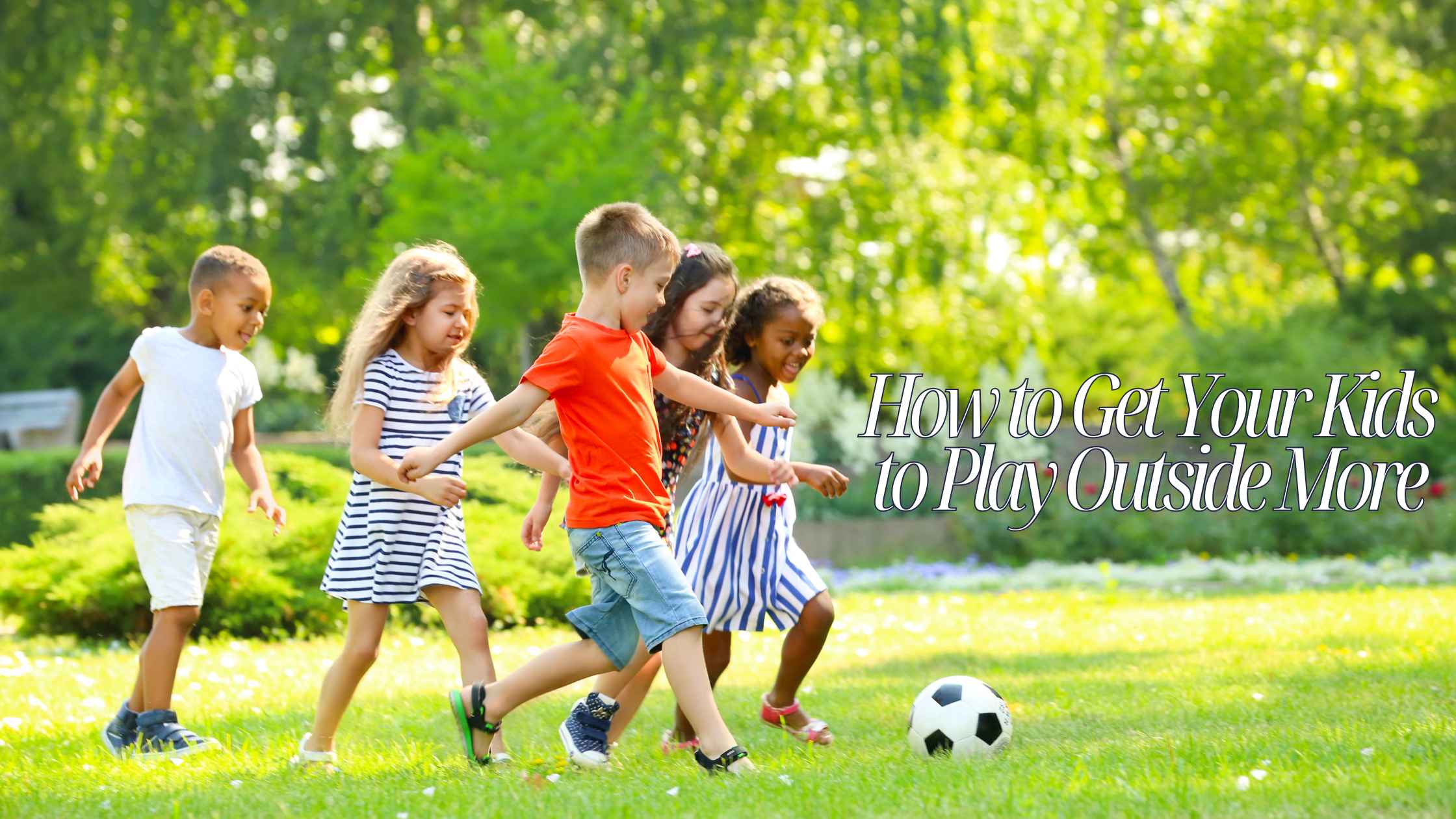As a parenting coach with over 15 years of experience, I often hear from stressed out parents who struggle to tear their kids away from screens and get them outside.
Trust me, I’ve been there! As a busy working mom of four kids, I know it can feel impossible to motivate kids to play outdoors these days. From smartphones and tablets to video games and TV, screens threaten to hypnotize kids into staying inside.
But we all know getting fresh air and exercise is vital for children’s health and development. Time spent outdoors exposes kids to nature, gets them moving, fuels creativity and imagination, reduces stress, and promotes better sleep.
As a pediatric physician, I always remind parents that outdoor playtime should never be treated as optional. It’s a crucial part of a healthy childhood.
So how can we actually make it happen? After coaching countless families, I’ve discovered plenty of practical tips and kid-approved strategies that get results.
In this comprehensive guide, I’ll share all my best tricks to help you rein in the screens and successfully get those kids playing outside – even if you have a tiny yard, challenging weather, or super stubborn indoor kids!
Why Outdoor Playtime Matters

Before we dive into the how-to strategies, let’s first review the incredible benefits of outdoor play. Understanding why it matters so much will fuel your motivation to make it happen!
Here are some of the top reasons kids absolutely need regular outdoor playtime:
- Vitamin D – Sunshine provides vitamin D, which is crucial for growth, bone health, and immune function. Lack of outdoor play can put kids at risk for vitamin D deficiency.
- Exercise – Active outdoor play builds physical fitness, strength, coordination, and motor skills. The variety of movements enhances balance, agility, and athletic ability.
- Reduced Stress – Playing outdoors alleviates anxiety, depression, and stress by increasing serotonin levels. The natural settings lower blood pressure and cortisol.
- Creativity – Unstructured outdoor play boosts imagination as kids invent new games and explore environments. This sparks ingenuity, problem-solving, and cognitive flexibility.
- Social Skills – Games with neighborhood kids, siblings, or parents build meaningful connections. Kids learn teamwork, conflict resolution, empathy, and leadership.
- Focus – Exposure to nature improves kids’ focus, memory retention, and ability to concentrate by restoring mental fatigue. This boosts academic performance.
- Healthy Sleep – The exercise, sunlight, and lower stress from outdoor play leads to deeper, higher quality sleep at night.
Given all these benefits, it should be clear why we need to prioritize outdoor playtime in our busy schedules. The long-term payoff for your child’s health and development is well worth the effort.
Now let’s get into the actionable tips and tricks for making outdoor play happen every day!
1. Set Clear Guidelines for Media Use

The first step is limiting media consumption so your kids have time for outdoor play. Make rules about how much TV, tablet, smartphone, and video game time is allowed each day.
Some guidelines I recommend:
- No screens in the morning before school
- Shut off all devices at least 1 hour before bedtime
- No TV or tablets during mealtimes
- Video games only on the weekends
- Smartphones/social media limited to 30 minutes a day
Be sure to get your kids’ input and agree on times that work for everyone. Making outdoor playtime mandatory before media use is also effective. And don’t allow media in their bedrooms! Keep all electronics in a public space you can monitor.
2. Designate “Unplugged” Days
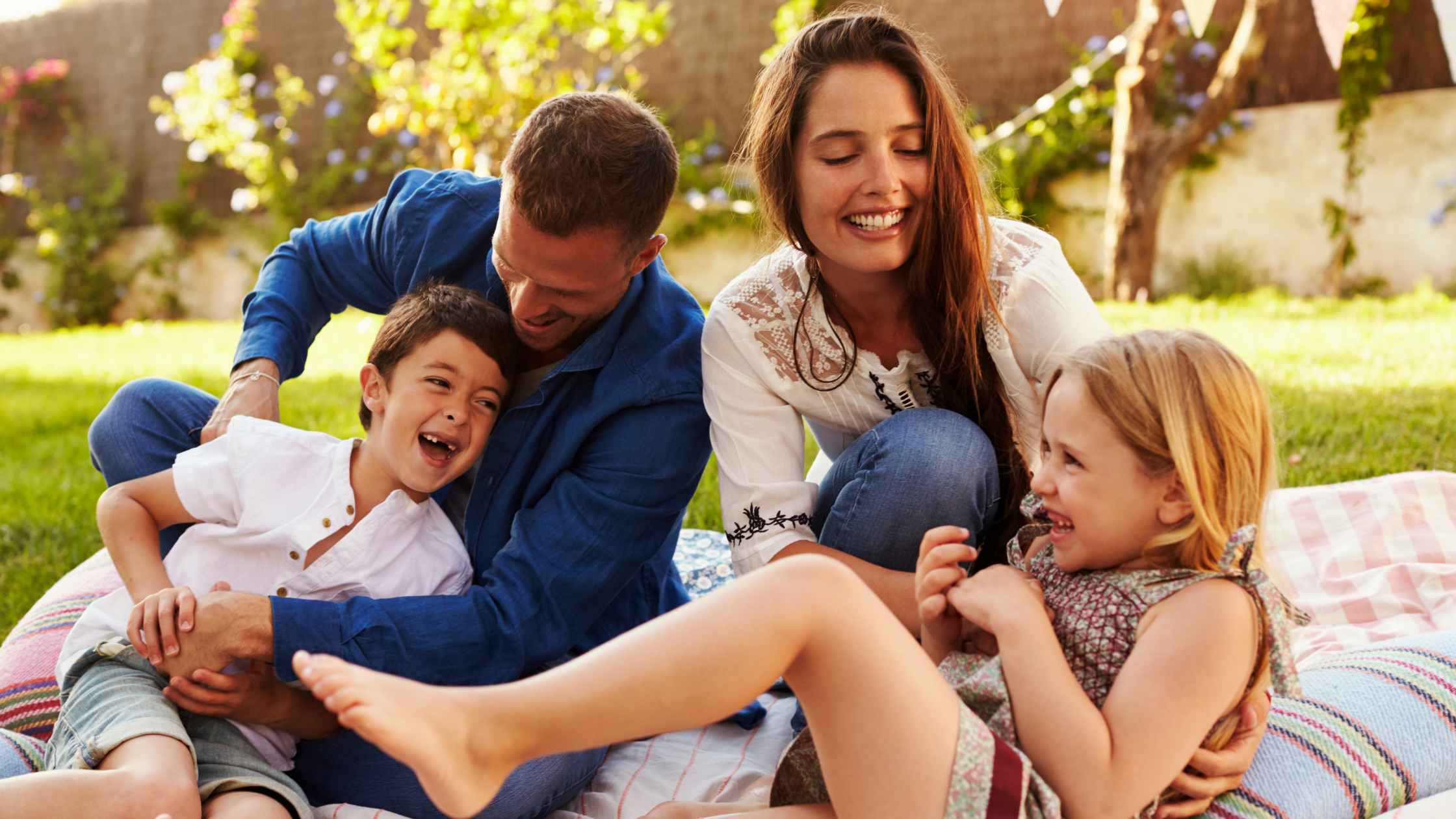
Select 1-2 days per week to go completely screen-free. Some ideas for “unplugged” days:
- Device-Free Saturdays – Ban all electronics for family outdoor activities and board games. Order pizza or get takeout to simplify mealtime.
- Digital Detox Sundays – Go screen-free the full day. Break out craft supplies, sports equipment, and outdoor toys to replace device time.
- Tech-Free Tuesdays – Every Tuesday, keep weeknight media consumption to zero. Spend the extra hours playing outside, reading books, doing puzzles, or engaging in family hobbies.
3. Plan Outdoor Family Fun Days
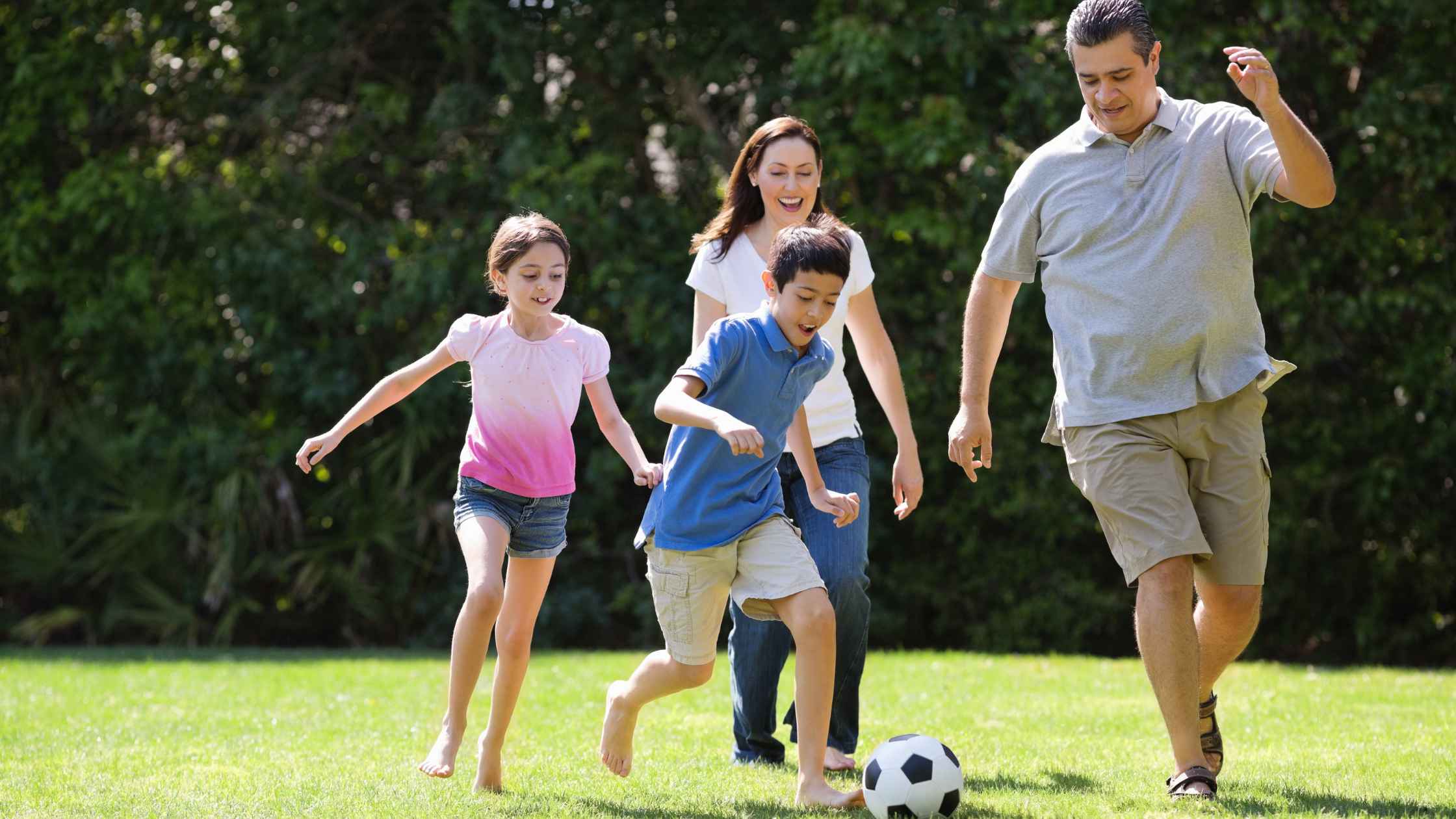
Set aside one day each weekend for special outdoor adventures with the whole family. Give your kids something exciting to look forward to. Ask them to help choose the activities – it could be hiking, biking, visiting a zoo or botanical garden, beach day, fishing trip, etc.
Get creative with your outings! Camping in the backyard, outdoor movie nights, water balloon battles, taking your Lego builds outside – anything that gets you playing as a family works.
4. Schedule Daily Outdoor Time
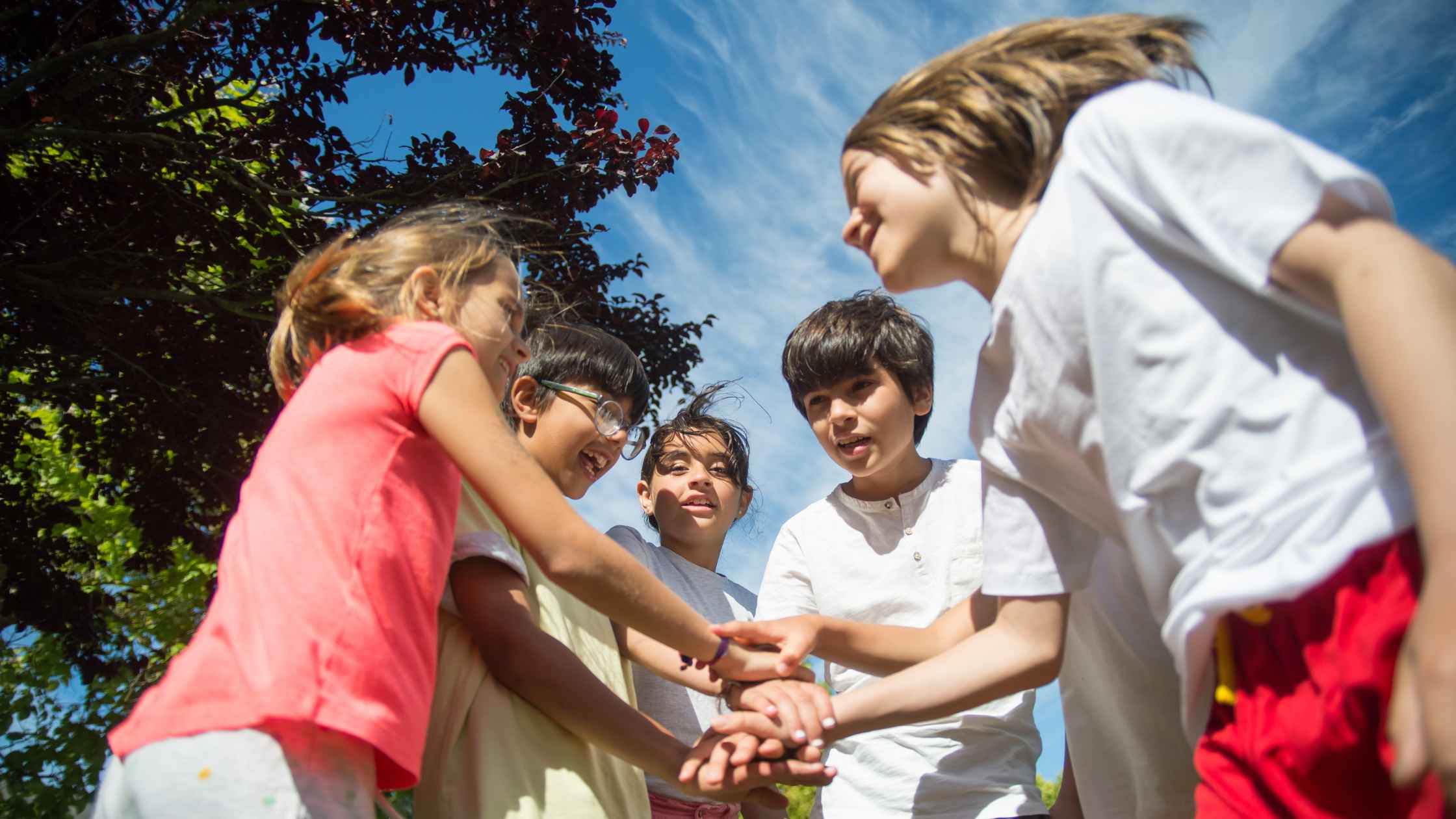
Consistency is key when building healthy habits. Work outdoor playtime into each day’s routine, just like meals and bedtime.
I recommend:
- 60-90 minutes of outdoor play for ages 3-5
- 1-2 hours for ages 6-12
- 30-60 minutes for teens Try scheduling outdoor blocks when kids tend to get antsy – after school, before dinner, right after homework. Verify they’ve had playtime before allowing media use.
5. Make a Menu of Outdoor Activities
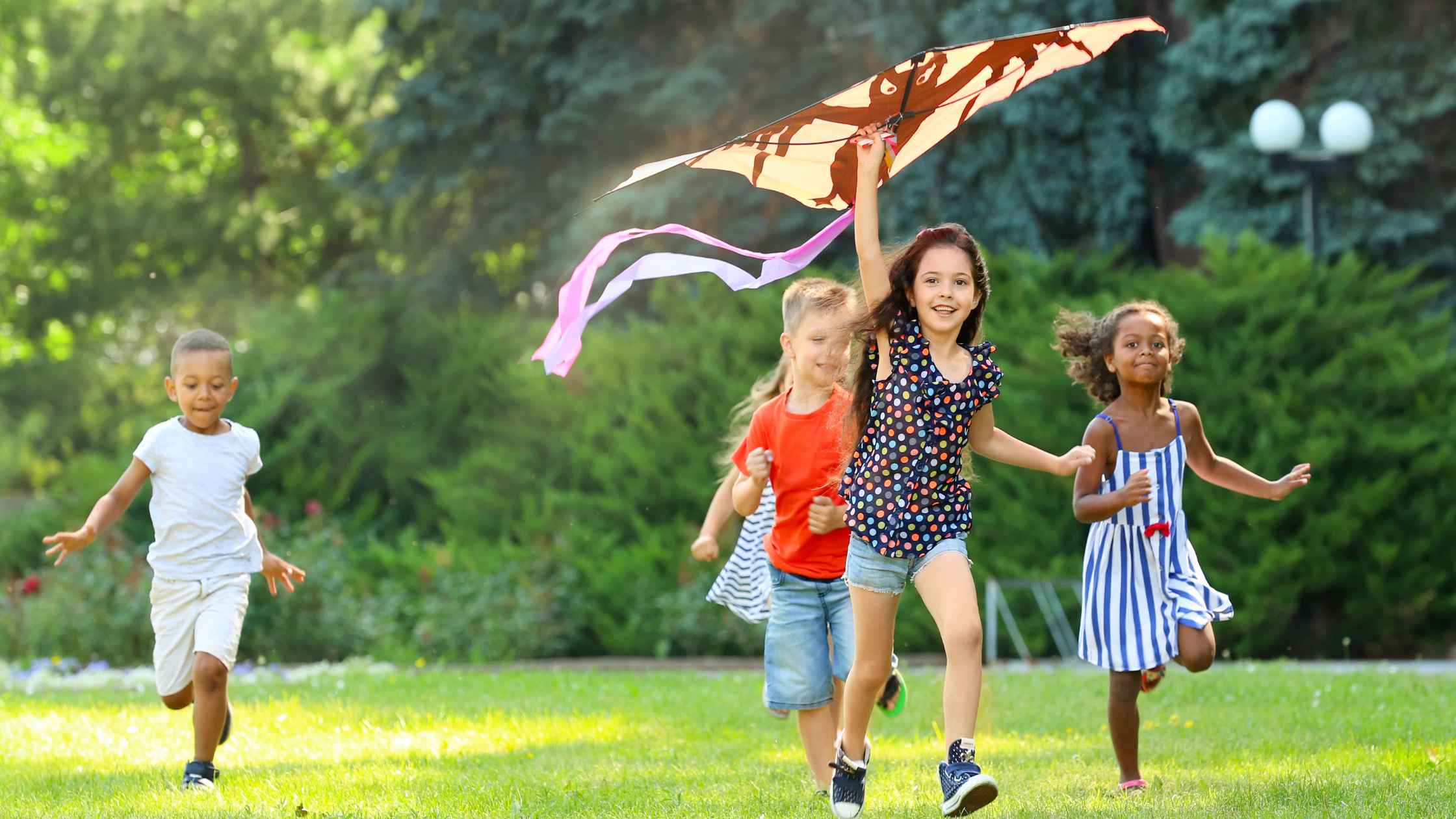
Come up with a big list of engaging outdoor games, sports, and adventures. Have your kids contribute their favorite ideas too. Then make a menu organized by time blocks, weather, and how much energy they require. Examples:
High Energy
- Bike riding
- Backyard obstacle course
- Jump rope challenges
- Soccer
- Basketball
- Tag
Medium Energy
- Scooters/skateboards
- Nature scavenger hunt
- Water balloon tosses
- Flying kites
- Gardening
Low Energy
- Reading under a tree
- Cloud watching
- Sidewalk chalk art
- Outdoor puzzles
- Picnics
Print out the menu and post it on the fridge. When kids say they’re bored or don’t want to play outside, have them select from the menu.
6. Always Keep Outdoor Toys Accessible

The easiest way to get kids outside is making open-ended toys readily available in the yard. Stock up on sidewalk chalk, bubbles, jump ropes, balls, frisbees, hula hoops, roller skates, etc.
Cycle through bigger items too – sprinkle in the water table, slip n’ slide, or homemade obstacle course. Changing up the accessories sparks renewed interest and creativity.
7. Build Outdoor Play Spaces
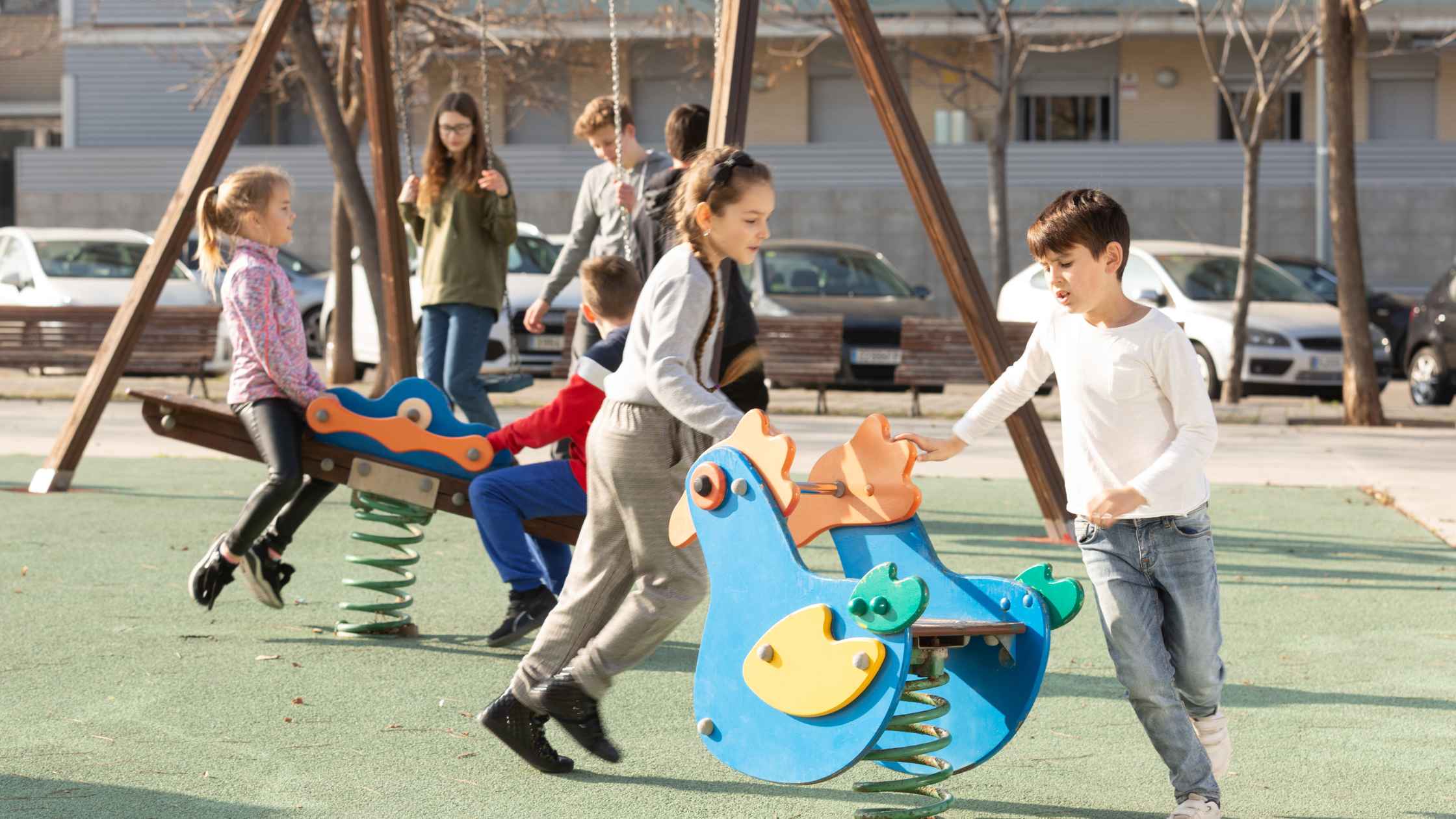
Invest time and energy into creating spaces perfect for your kids’ interests and ages. Options for all yard sizes:
- Gardening area with raised beds for digging in the dirt
- Reading nook with comfy seating and shade
- Sandbox with buckets and shovels
- Mini climbing structure or playhouse
- Basketball hoop or other sports setup
- Designated space for water play – sprinkler, pool, water table
Include a storage bench or shed with easy access to toys. Having their own special spots motivates kids to spend time playing and exploring outdoors.
8. Get Them Involved in Yardwork
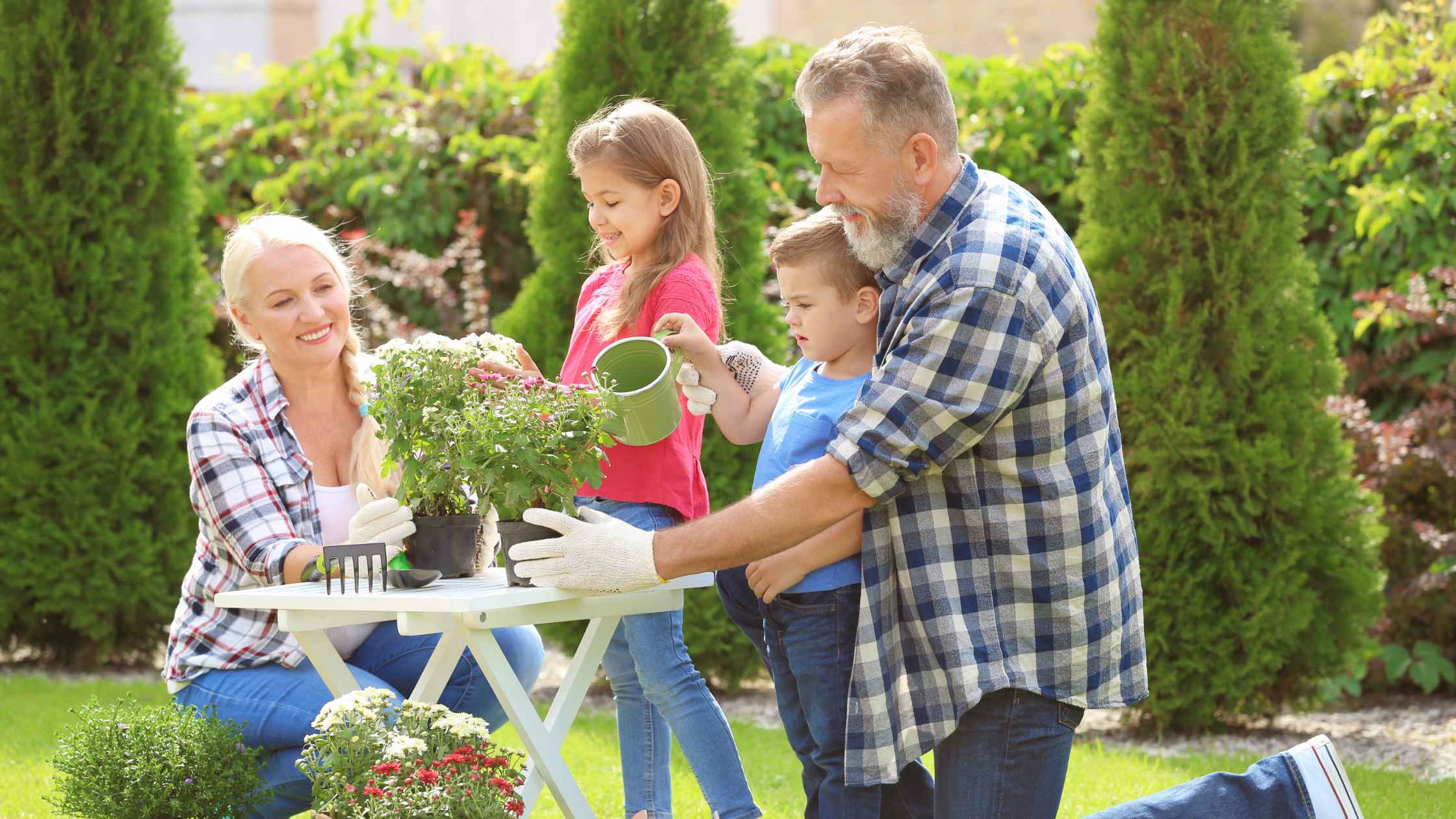
It may sound counterintuitive, but assigning your kids age-appropriate outdoor chores can actually make them more excited to be outside.
Hands-on roles make them feel pride in the yard while teaching valuable skills. Start with simple tasks like:
- Watering plants
- Pulling weeds
- Raking leaves
- Digging holes for bulbs
- Planting seeds or starters
Let them go wild decorating their own garden plot too. Just beware of selecting high-maintenance plants!
9. Go on Nature Scavenger Hunts
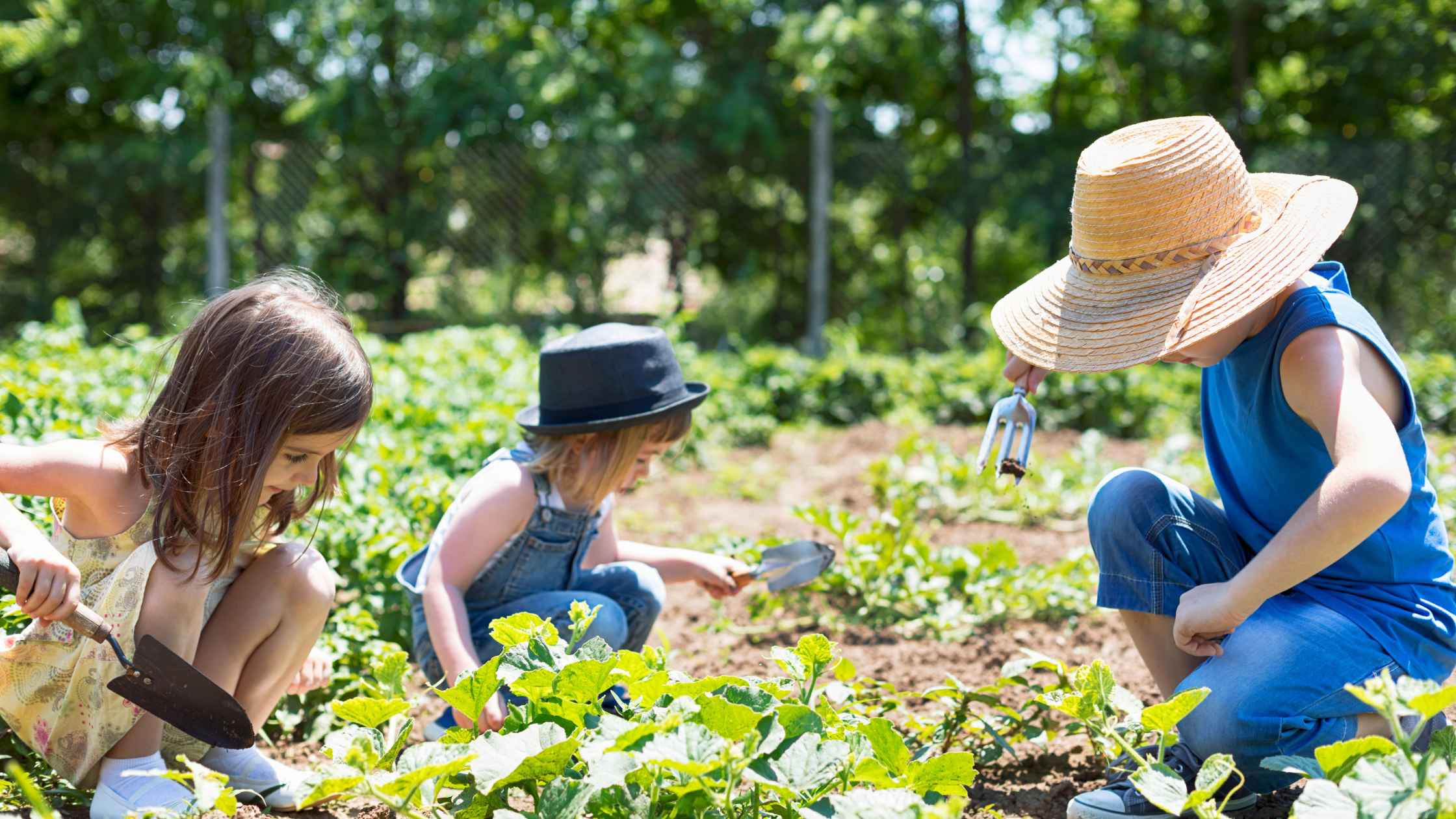
Scavenger hunts are naturally engaging for kids of all ages. Send them on missions to collect specific objects like pinecones, feathers, acorns, flowers, and insects.
To amp up the adventure even more, make a treasure map leading to the final prize. Or have them hunt for clues to solve riddles that win a prize like a new water gun.
10. Get Neighborhood Kids Involved
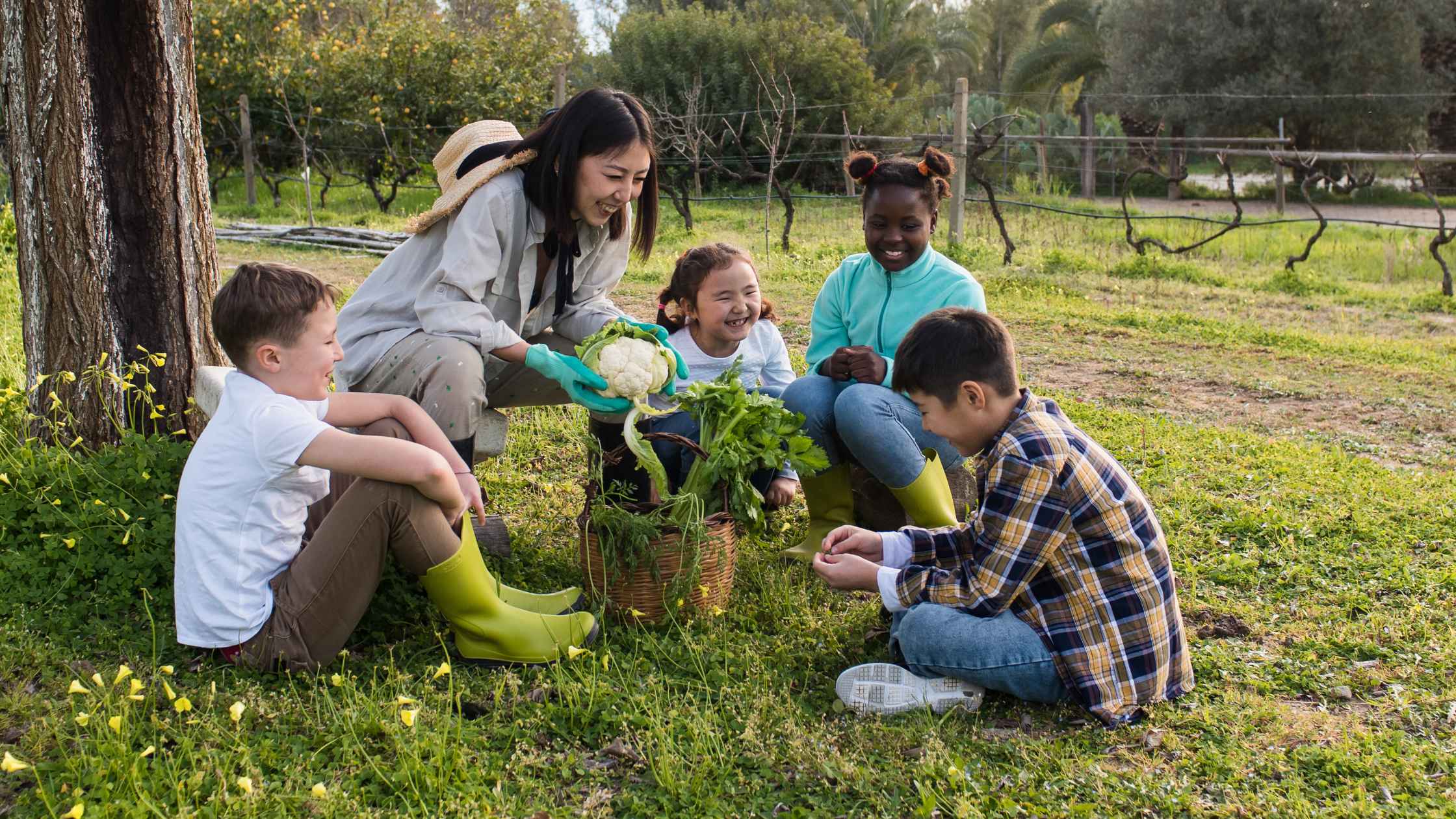
Peer influence can be your secret weapon! Coordinate outdoor playdates with friends on your block. The more kids playing outside together, the more irresistible it becomes.
Exchange phone numbers with parents so kids can gather friends themselves. You’ll gain peace of mind knowing there’s adult supervision nearby.
11. Offer Rewards

Sometimes kids just need a little extra motivation. Offering periodic rewards for regular outdoor playtime can work wonders.
Make a point chart where they earn points for every 15-30 minutes spent playing outside. At the end of the week, they cash in points for prizes like:
- Choosing dinner menu
- Extra storytime at bed
- Staying up 30 mins late
- New art supplies
- Trip to the movies
This builds the habit while also teaching them to delay gratification!
12. Be Their Playmate
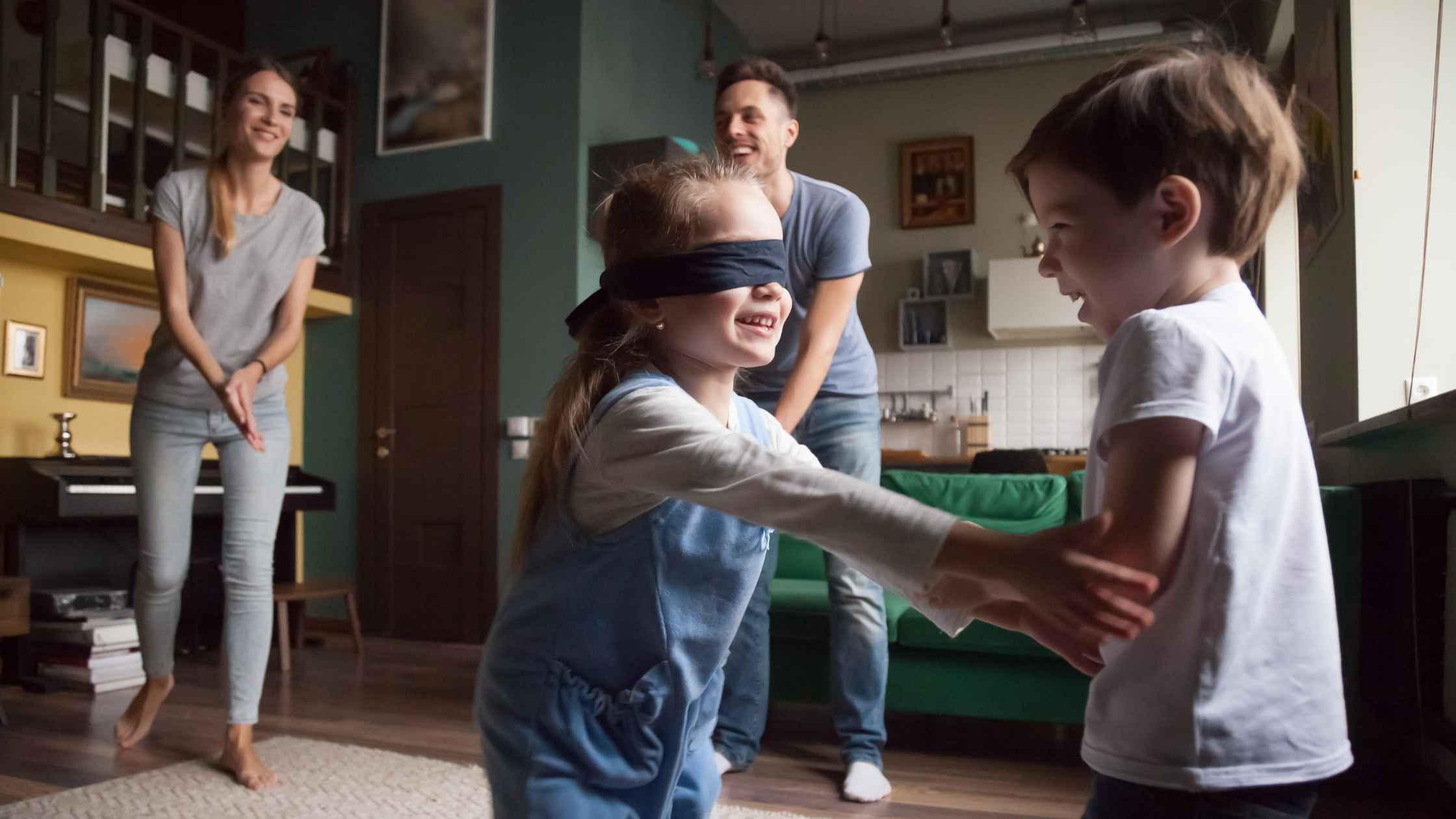
One of the most powerful motivators for kids is playing with mom or dad! Set aside time to join in their games – get silly, let your inner child come out.
Play hide and seek, catch, red light/green light, freeze dance, or make up new imaginary adventures. Not only will they love the special time with you, but it builds healthy family bonds.
13. Set Nature Exposure Goals
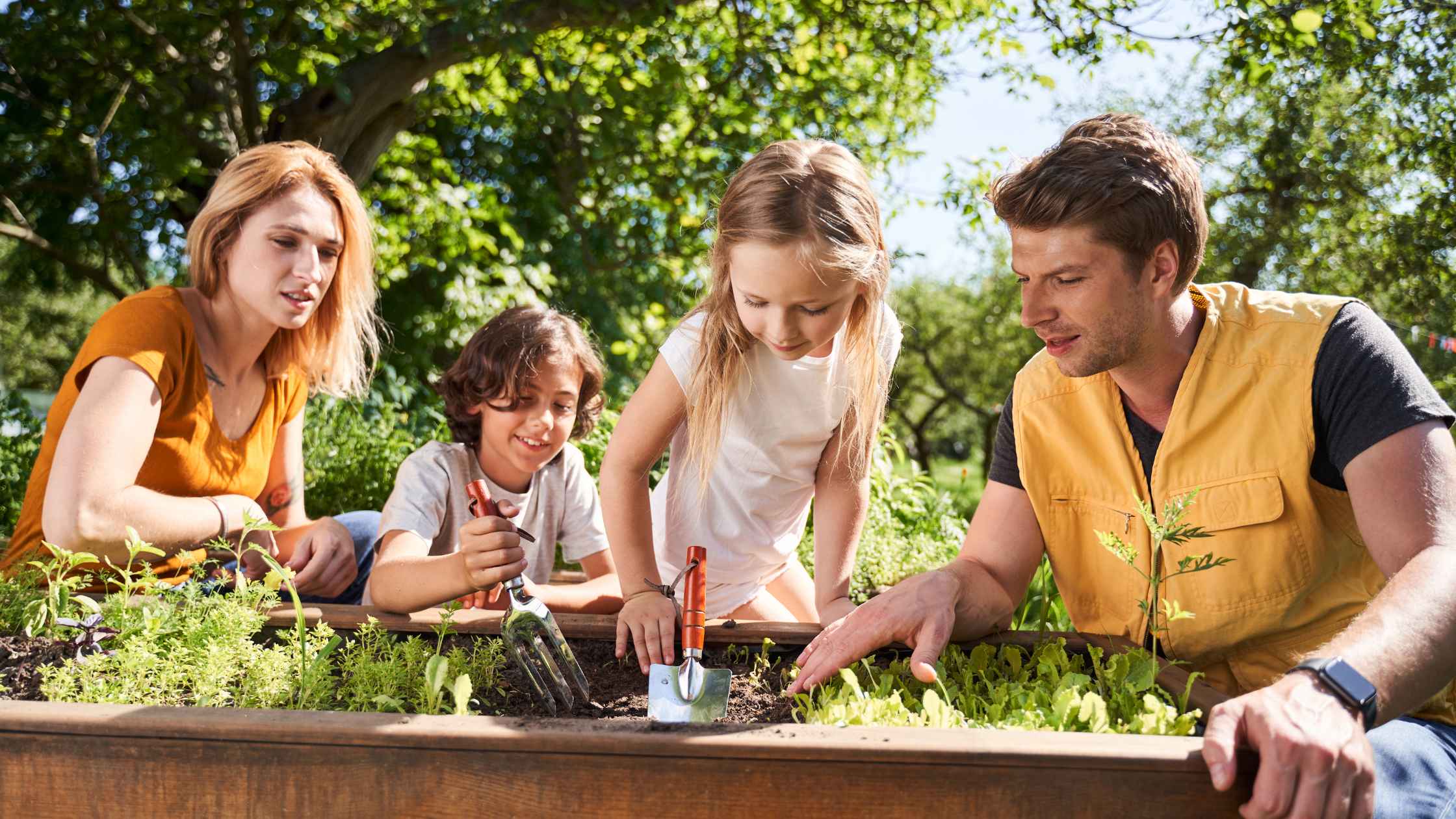
Help your kids pay closer attention to the natural world by giving them goals for their outdoor time. Have them:
- Identify 5 new birds or bugs
- Find signs of wildlife like tracks or scat
- Observe how plants change across seasons
- Learn to identify trees, flowers, and clouds
Providing some structure and purpose motivates kids to more deeply engage with nature. Teach them to respect living things while exploring.
14. Involve Them in Gardening
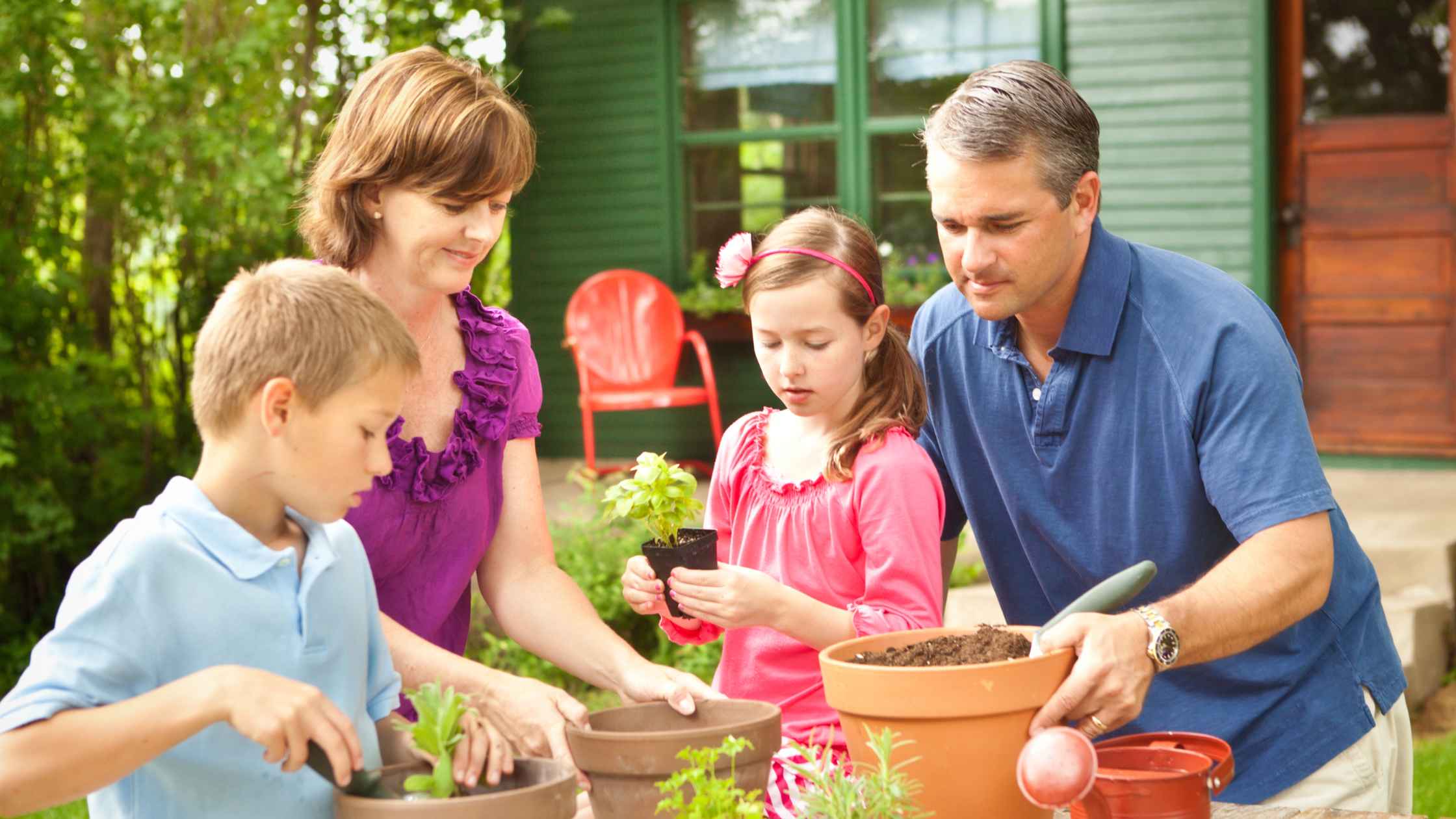
Few activities get kids more excited to be outside than having their own garden plot! Let them select seeds or starters for fruits, veggies, or flowers they’ll enjoy.
Teach the science behind plants, like:
- How soil, water and sun help them grow
- The parts of plants and what they do
- Pollination and the role of bees
They’ll gain such satisfaction watching their plants sprout and produce. Harvests and flower bouquets are the sweet rewards!
15. Go Camping as a Family
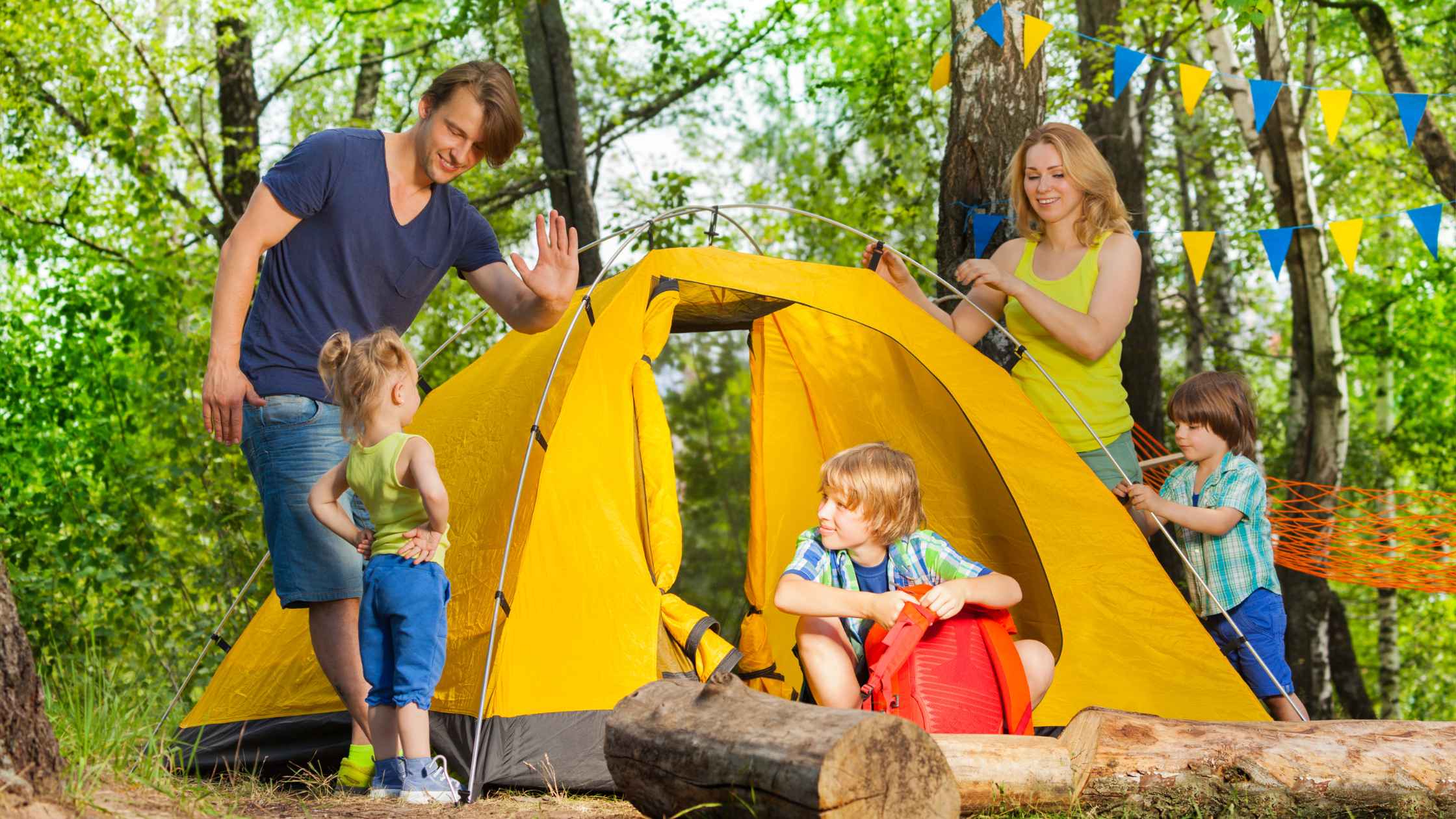
From setting up the tent to cooking s’mores over the campfire, camping brings endless outdoor fun. You can start car camping and work up to backpacking as kids get older.
If you can’t get away, set up a campsite right in your yard! Let them “hunt and gather” for sticks to roast hot dogs for the full experience.
16. Sign Up for Outdoor Sports
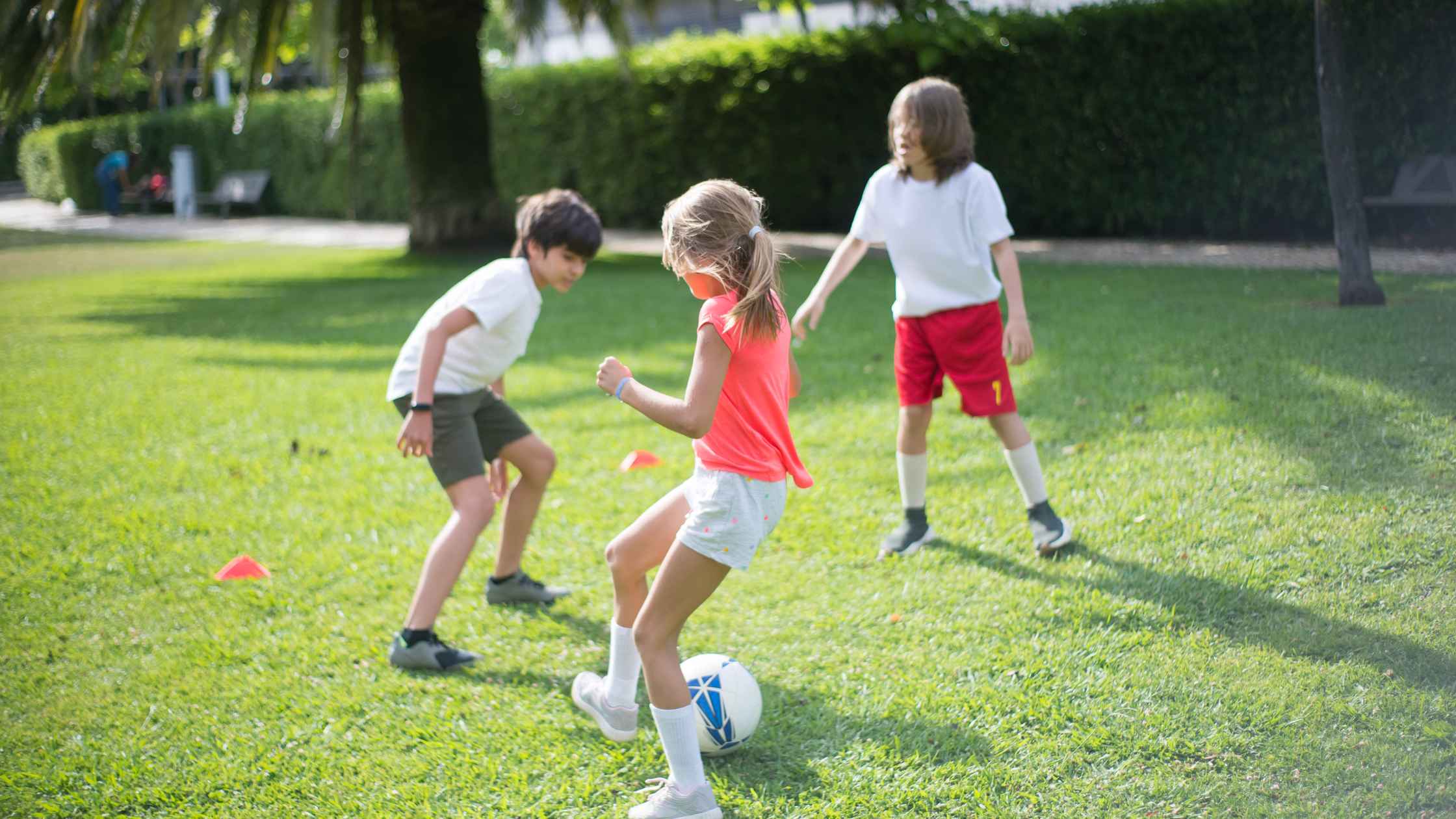
Team sports give kids exercise, social bonds, and sense of purpose. With practices and games, they commit consistent hours to outdoor play each week.
See what’s available in your community through parks and rec, schools, YMCAs. Soccer, baseball, basketball, and flag football are crowd favorites. Help them pick sports aligned with their interests.
As an alternative, take up a lifelong hobby together like golf, tennis, archery, or horseback riding. These teach focus, patience, and physical skills.
17. Schedule Outdoor Playdates
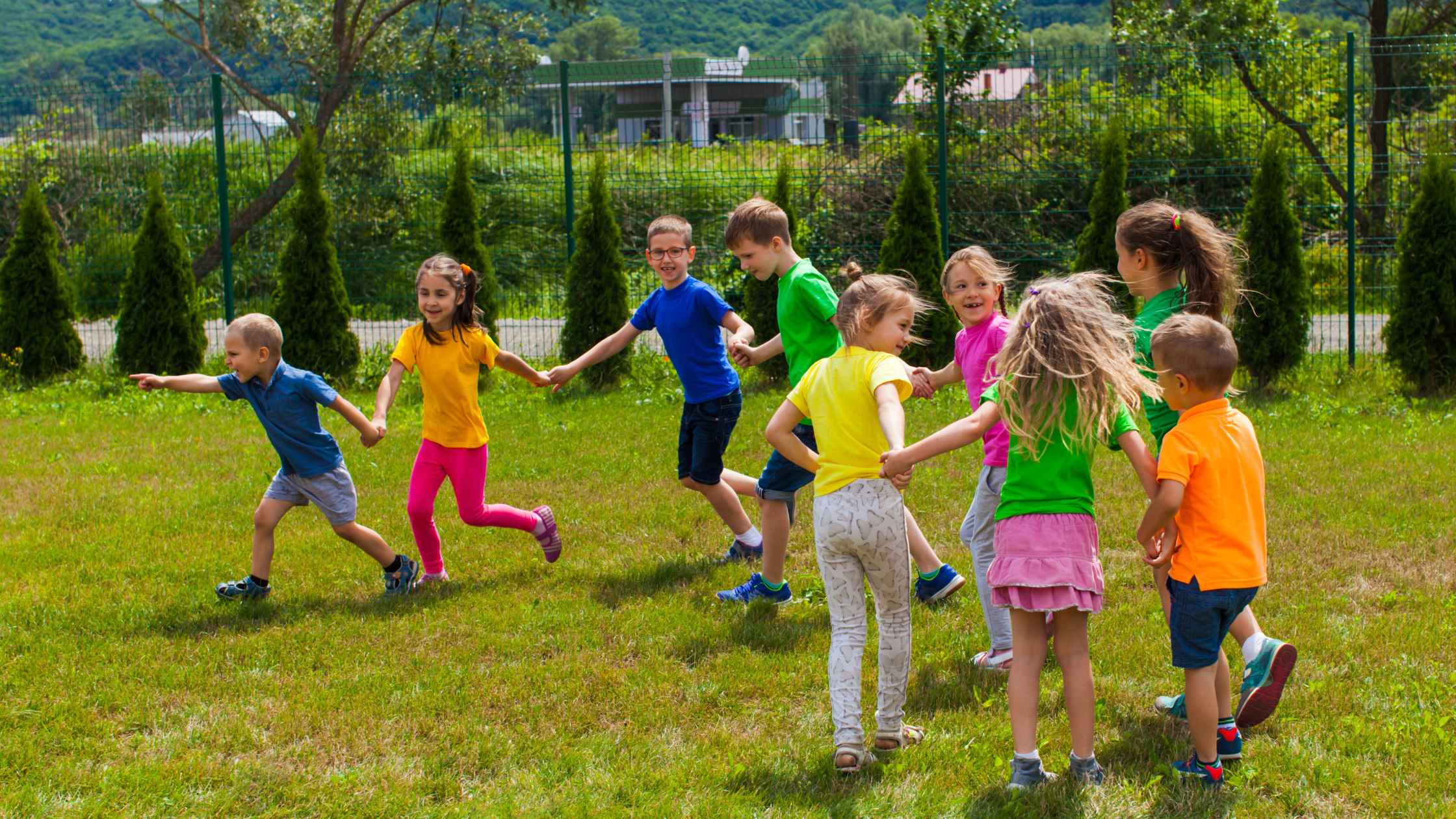
Coordinating playdates with friends is a surefire way to pull kids outside. Let them take the lead in choosing activities – it could be a neighborhood scavenger hunt, water balloon battle, softball game, or free play.
Reach out to parents you trust to set up regular outdoor playdates. It takes the pressure off you while giving kids both exercise and social time.
18. Make Outdoor Family Memories

There’s no better motivation than happy childhood memories built through family adventures outdoors. Make outdoor activities a non-negotiable part of weekends and vacations.
Foster shared experiences your kids will treasure for life – like camping trips, canoe adventures, hiking through national parks, beach combing, and more. Prioritize simple quality time together in nature.
Those lifelong positive associations will make the outdoors an integral part of their childhood they wouldn’t trade for any video game or show.
Final Tips for Success
- Stick with routines and schedules. Consistency is vital when building habits.
- Praise and encourage kids for playing outside. Positive reinforcement goes a long way.
- Simplify meals on outdoor activity days. Order takeout or prep snacks so you aren’t drained.
- Set reminders on your phone/calendar for daily outdoor time.
- Add visual cues like hangingTheir shoes by the door as a reminder.
- Bundle up in cold weather! Layers, mittens, hats, and mud boots prevent complaints.
- Apply sunscreen and bug spray before outdoor play to avoid problems.
- Occupy younger kids while older ones play outdoors. Independent time is important too.
- Swap screen time for outdoor time in equal measure. Make it an even exchange.
- Meet other families at parks for instant playmates. Networking expands options.
- Remind teens outdoor play still reduces stress and boosts health even if “uncool.”
The Rewards Are Worth It
As parents, we all want the best for our children. And there’s no question that prioritizing outdoor playtime is crucial to their long-term health, wellbeing, and development.
But in the age of endless screens and hectic schedules, making outdoor play happen takes strategy and commitment. We have to think creatively to capture our kids’ imaginations while also building their independence in the great outdoors.
By putting these tips into action, you’ll soon find the right incentives and routines to get your family enjoying all the benefits of outdoor play – every single day. Sticking to the plan isn’t always easy, but the rewards for your children are absolutely worth it.
So take that first step today. Set media limits, stock up on sidewalk chalk, and start planning your outdoor weekend adventures. I guarantee that within a month, you’ll have happy, healthier kids who can hardly wait to get outside.
Now if you’ll excuse me, it’s time to take my own advice. My kids just invited me to an epic bubble-blowing competition in the backyard. And I fully intend to let them trounce me!
